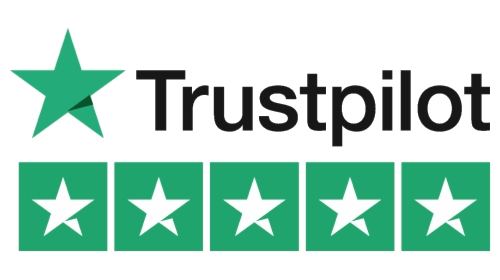A merchant cash advance can be a powerful path to business financing. However, a merchant cash advance sometimes referred to as an MCA, is different than a traditional bank loan. An MCA is often granted based on cash flow from credit card sales and debit card sales and often can be made to the borrower regardless of personal credit score. So, you don’t need perfect credit for an MCA loan.
Get Funded Now
A merchant cash advance is a type of business credit that bases its repayment terms on the volume of daily credit card sales processed by small business owners. It is usually made in a lump sum payment to a merchant and repaid by deducting a percentage of future card sales directly from the merchant account of the credit card processor.
While an MCA loan may seem similar to a term loan or other types of financing, small business owners should be aware that a merchant cash advance has very specific characteristics and can be more costly than conventional loans. In fact, there are likely more differences in an MCA loan than most small business loans.
The biggest difference in this type of business funding (MCA) is that it is one of the most expensive types of financing. An MCA therefore should be used only in times of extreme business needs for additional capital.
In this article, we will discuss the basics of an MCA business loan. Use this information to make an educated decision about using one for your specific situation.
What is an MCA? How Does a Merchant Cash Advance Work?
Technically speaking, a merchant cash advance isn’t a business loan in the traditional sense. Instead, you’re setting up a cash advance loan based on your company’s future credit card sales and future revenue. Your lender uses your credit card receipts to project whether your business can pay back the cash advance using future sale receipts.
In the approval process for an MCA, MCA providers will look at card sales, your business bank account, and credit card processing statements.
Unlike a bank loan, the lender (a merchant cash advance company) rarely looks at your credit history to base its lending decision. So if you have poor credit or a low credit score, you can still qualify for an MCA-type loan. There isn’t a long waiting period to gain access to a merchant cash advance because your daily credit card receipts provide a cut and dry look into whether you can repay the funds.
In essence, you’re gaining access to business capital today by selling a portion of your future credit card sales.
A merchant cash advance is a fixed amount of funding that is paid to a small business owner in one lump sum. Unlike a business line of credit where the business owner takes what they need, an MCA is essentially an all-or-nothing type of financing. Let say an MCA lender gives an advance amount of $10,000. The merchant must take the full amount upfront and agrees to pay a fixed amount for the use of that money. The fixed amount to be repaid is called a factor rate. A factor rate is expressed as a decimal amount of the loan or advance amount. So if your factor rate is 1.25 you immediately have to pay back $12,500 for the MCA loan.
Unlike an interest rate that is calculated annually and keeps accruing until the balance is paid, a factor rate defines the payback amount in the initial agreement. Thereafter, the repayment amount is almost always calculated as a percentage of credit card sales.
Who are MCAs Mainly Designed For? Who Uses Them?
Businesses that receive revenue via debit card or credit card sales can take advantage of MCAs. Examples might include:
Auto repair shop
Salon
- Health Care
Retail store
E-commerce businesses
- Trucking & Transportation
For example, an auto repair shop owner may look at an MCA as more favorable than a traditional business loan for a number of reasons. Traditional financing often requires a lengthy application process, will have to show good credit from the credit bureaus and maybe putting up collateral when qualifying. If a car repair owner can’t pay the loan back on time, they risk forfeiting vital equipment or machinery. On the other hand, that repair shop owner will likely pay a premium to get the MCA financing. It’s a significant trade-off.
A salon owner will usually have a high volume of credit card receipts due to a large number of daily paying customers. However, salons typically don’t have assets to pledge as collateral to secure a loan. This makes a merchant cash advance a potential capital source.
The same goes for retail stores and restaurants. Customers of these types of businesses pay with credit cards. You can access a cash advance that lets you pay for more inventory, hire additional employees, or expand your business. You can even use invoice factoring to obtain a cash advance on cash receivables.
Requirements for an MCA
How to Apply for a Merchant Cash Advance
You can apply for a merchant cash advance and receive an approval decision in a matter of hours or days. Here are the steps to take when applying for an MCA.
Fill out an application. An MCA business loan application is typically one to two pages. It will ask for your business tax ID, social security number, and other vital business information. A business credit score is not required to apply.
Provide the required documentation to your lender. You will need to show bank statements and credit card processing recipes for the past few months. You may also need to provide your business lease documents.
Wait for the cash advance approval. You should get an answer within 4 to 24 hours. You’ll then see the MCA funds deposited into your bank account. From there, you’ll repay the deposit overtime via a percentage that gets deducted from each credit card transaction.
Pros of a Merchant Cash Advance
Many pros exist when using MCA loans.
Quick funding
You don’t need collateral to qualify
No fixed monthly payments
You can get approved even if you have bad credit
Interest doesn’t accrue
Late fees don’t exist because you pay a percentage of each credit card transaction
Cons of a Merchant Cash Advance
- High cost of borrowing
- Reduces future cash flow
- Startups will not qualify







One Response
I like it